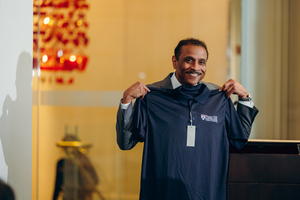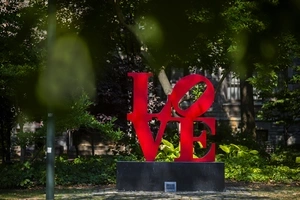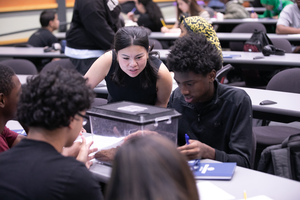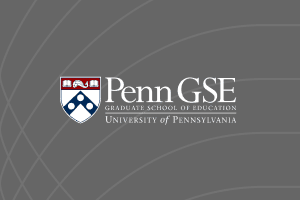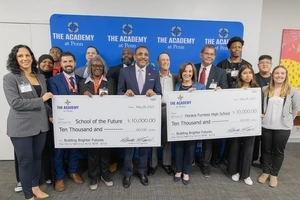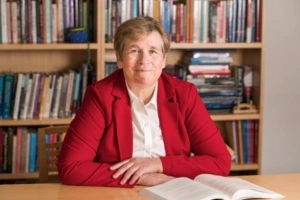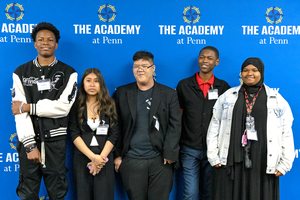What is our role in supporting schools and communities to address persistent inequities? And how can lessons from the Civil Rights Movement inform our approach to those problems?
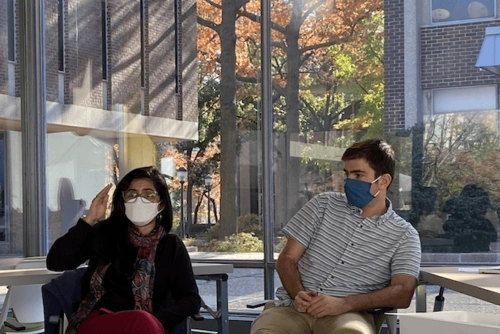
These are among the questions that Penn GSE students, faculty and staff discussed at the School’s 2nd annual One Book, One GSE event on November 10. The book at the center of these conversations, Radical Equations: Math Literacy and Civil Rights, chronicles Robert P. Moses’ work as a Civil Rights activist and math educator.
Moses pioneered voter registration efforts in the 1960s and later created the Algebra Project, designed to help African American students succeed in math, a skill he deemed crucial for full citizenship as the U.S. shifted to a knowledge-based economy.
GSE community members gathered in small groups on campus and online to discuss Moses' legacy and how it connects with their work as teachers, researchers, and education leaders. The conversations, facilitated by staff and faculty volunteers, were an opportunity to increase racial literacy, spur ideas on how to put knowledge into action, and build stronger connections across the school.
Finding a central cause
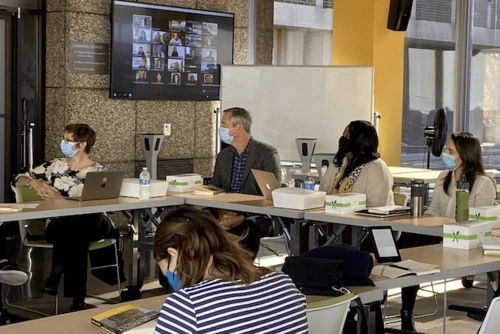
In connecting Moses’ experiences to her own work with the Responsive Math Teaching Project at GSE, Dr. Joy Anderson Davis found inspiration in Moses’ efforts to identify a central cause around which people can organize.
“Our work involves supporting classroom teachers, and we’ve spent a lot of time in classrooms talking to teachers and students,” said Anderson. One of her team’s current goals is to partner directly with parents and caregivers, she explained, to better understand the experiences and needs of parents in their efforts to support their children's math learning.
“What Moses said about finding an issue that everyone can hang their hats on – identifying rather than creating a cause – really resonated with me. I keep asking myself, 'What is the shared cause around which we can mobilize?’”
Making it real for kids
For Danielle Roof, a master’s student in Penn GSE’s Teaching, Learning, and Leadership program, one passage from Radical Equations rang especially true from her experience as a social studies teacher. The passage describes Moses’ sense that teenagers, when thinking about the Civil Rights movement, often “lump everyone from the first African enslaved in America through Martin Luther King Jr. as living at the same time.”
This observation prompted Roof to think about ways that she could breathe life into activists like MLK, Fannie Lou Hamer, and Robert Moses. “How can we use their histories to get kids to engage more deeply in the past, and to see how the past connects with their lives today?” she asked.
Keeping Moses’ legacy alive
Moses, who died this summer at age 86, delivered the keynote address at Penn GSE’s 2017 commencement ceremony, where he also received an honorary Penn degree.
“One of the high points of my tenure as Dean was the opportunity to meet Bob Moses at our commencement and to witness the power of his voice, his courage, and his deep commitment to education as a civil right,” said Penn GSE Dean Pam Grossman.
“As we mourn his loss, we can continue to learn from his life’s work and to hear his singular voice reverberating through his words.”
Resources on Moses and his legacy
- One Book, One GSE Project and the Penn Libraries – trove of resources on Moses from Penn Libraries
- The Enduring Influence of Fannie Lou Hamer, Civil Rights Advocate – review of two books that describe the advocacy work of Fannie Lou Hamer
- California Tries to Close the Gap in Math, but Sets Off a Backlash – article about the current challenge that California is facing in closing the gap in math
- The Algebra Project: Bob Moses’ ‘Gateway to Equality’ For Black Students – overview of Moses’ legacy
